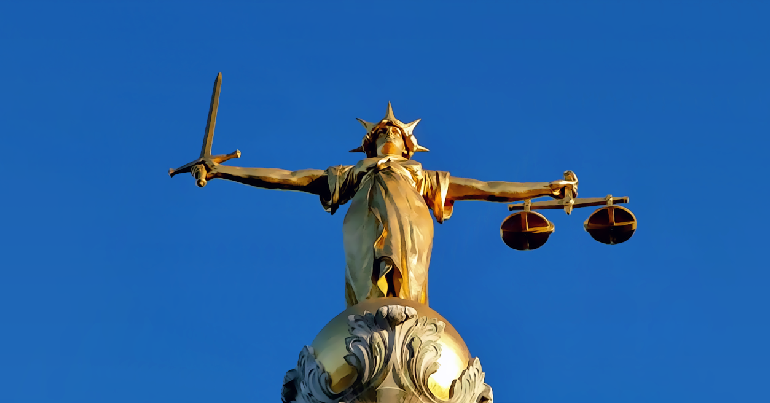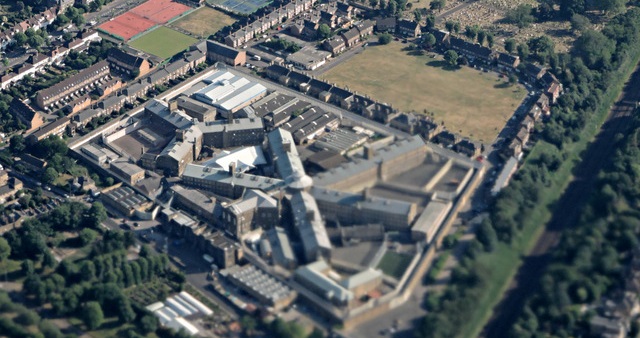If the Tories cared about the rule of law, they’d overturn the dismantling of legal aid

The international affairs section of the Conservative Party’s 2019 election manifesto talks of championing the rule of law. That’s not something talked about in the domestic sections, however, unsurprisingly perhaps given the Tory government had at the time just been found to have spectacularly broken the law in proroguing parliament.
The Conservative Party’s relationship with the law, and lawyers, is increasingly uncomfortable – at least with those lawyers prepared to defend individuals who’ve in some way been targeted by the state.
That’s a point that was driven home this week at a hearing of the All-Party Parliamentary Group (APPG) on Legal Aid’s inquiry into the sustainability of provision of this essential service.
The day’s hearing was focused on the public bar. Professor Jo Delahunty QC, told the hearing that due to the lack of funding, the pool of barristers who primarily take legal aid work is dwindling to “vanishingly small”, with extinction threatening.
That fact was reflected on by Adam Wagner, a human rights barrister at Doughty Street, who compared the fate of closing legal aid chambers with those serving government interests. None of those have closed.
A legal term came into my mind at this point: “equality of arms”. That surprisingly military metaphor is used to describe the way a court case can only be fairly conducted if both sides have equal legal representation. Yet already, deliberate government policies in the form of slashing legal aid are making that impossible. Even if funding were restored, the people would not be there to provide the services.
Labour’s shadow justice secretary David Lammy reflected on that in introductory remarks on the day, noting the extreme imbalance at the inquest in the tragic case of Zane Gbangbola, the campaign for justice for whom we’ve both supported.
It’s not just that the government has drained away the resources of legal aid: the annual legal aid budget is now £1.6bn a year, £950m less in real terms than it was in 2010, or removed all support for large areas of work under the 2013 Legal Aid, Sentencing and Punishment of Offenders Act (LASPO).
It’s also that the government has actively attacked the role of lawyers in upholding the rule of law: Priti Patel attacked “do-gooders” and “lefty lawyers”, her Home Office tweeted (although after an outcry deleted) an attack on “activist lawyers” and even produced a video with the same theme (also eventually deleted). Marina Sergides, a barrister at Garden Court, testified to the APPG: “We are public servants but we are not treated as public servants… we are actively attacked by the government.
That attitude permeates throughout government action. Just this weekend, Paul Powlesland tweeted that while assisting, pro bono, anti-HS2 protesters at Euston, he was slapped with a £200 Covid regulation fine. He said he’s confident of being able to fight it in court – but what a pass we’ve come to when police are acting against legal protection.
On the inquiry panel, Baroness Kennedy of the Shaws commented that the largest parties were all guilty of casual attacks on “fat cat” lawyers.
Such attacks make easy tabloid newspaper fodder, but there was a message of hope from the day’s inquiry, from Adam Wagner. He noted that the pressures of Covid19 have led to a renewed interest from the general public in the law, an understanding that under complex, constantly changing regulations, everyone could find themselves at risk of being accused of breaking the law – and needing legal aid to assert their innocence and rights.
That’s a counterweight to the longterm casual attacks we’ve seen, and sadly not just from the Tories, on human rights. That means of course everyone’s rights – the rights that any individual might need to be able to exercise should they be unjustly subjected to the massive power of the state.
But to exercise those rights, legal help is needed, expertise to wind through the labyrinthine details of the law and its application – which means every one of us might need a lawyer one day. If that person is not available, their profession has been swept aside, then we do not, cannot have, the rule of law.
That’s why the Green Party has, since LASPO was passed, been calling for the restoration of legal aid funding to at least the levels of 2010.
It is all very well talking about defending the rule of law overseas, but we need to do it at home. Justice unfunded is justice denied.
The refusal to provide the most basic support for the rule of law is one reason why I describe our current government as a far right one. It regards and treats the law as a tool for exercising its will, not a right that must be available for all.
PS. We hope you enjoyed this article. Bright Green has got big plans for the future to publish many more articles like this. You can help make that happen. Please donate to Bright Green now.
PPS. Bright Green has an exciting series of events coming up. Join us for debates, interviews and much more.
Image credit: Lonpicman – Creative Commons




Beautifully put, John! Brian, you’ve missed the boat, there’s hardly anything left to support.
Very heartening to feel the combative tone of Natalie’s article, so lacking in the normal tone of our leadership.
But then it is difficult to get roused about getting a powerless seat on a local council, to sit there with others across the political spectrum, all of whom now will say they are also convinced small g greens.
The alternative is not provided by Extinction Rebellion, who say nothing new, and waste much-needed passion.
Let’s rally behind Universal Basic Income, a potent vehicle to reverse the appalling inequality which is the necessary cog in the machine which despoils our planet, and give humanity a chance as part of all the rest of nature.
There is an amusing current advert for I know not what, but the message and the vigour is wonderful: “GET ON WITH IT!!!”
We must support the maintenance of legal aid !
We have the best legal system money can buy.